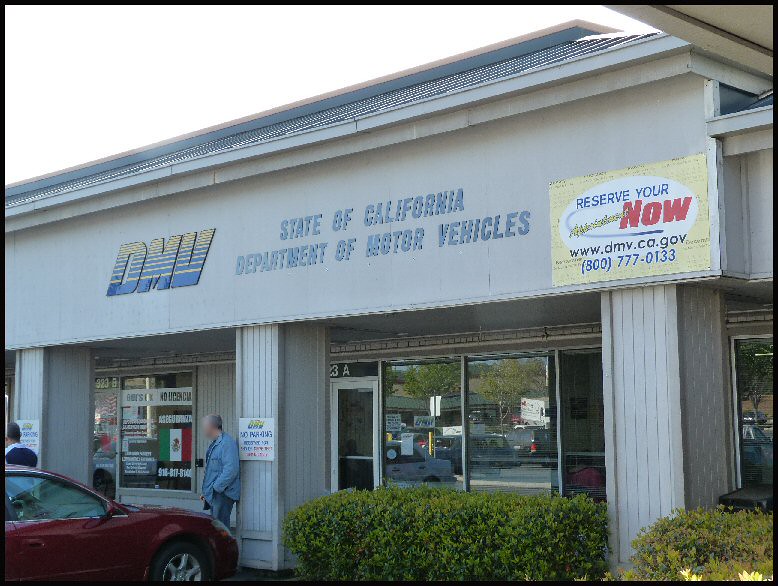 By all means, California is currently at the forefront of efforts to creating the preconditions and the right environment that is necessary for a faster adoption of autonomous cars. The Golden State is the home of several companies developing driverless cars and the testing ground for many self-driving prototypes. That is why California’s legislators have been putting a lot of effort into creating a set of rules that would regulate the operation of autonomous vehicles, but those rules have been changed several times and are expected to undergo a few more changes in the future.
By all means, California is currently at the forefront of efforts to creating the preconditions and the right environment that is necessary for a faster adoption of autonomous cars. The Golden State is the home of several companies developing driverless cars and the testing ground for many self-driving prototypes. That is why California’s legislators have been putting a lot of effort into creating a set of rules that would regulate the operation of autonomous vehicles, but those rules have been changed several times and are expected to undergo a few more changes in the future.
The state’s Department of Motor Vehicles, which is in charge of regulating self-driving cars, has announced that it plans to introduce new rules on autonomous vehicles. The DMV is working on a new set of rules that would significantly change the way driverless cars are operated.
“The primary focus of the deployment regulations is the safety of autonomous vehicles and the safety of the public who will share the road with these vehicles,” said DMV Director Jean Shiomoto. “We want to get public input on these draft regulations before we initiate the formal regulatory rule making process.”
Requiring Qualified Drivers to Sit in Driverless Cars at all Times
The new rules that the DMV is proposing are much stricter than the ones that are currently in force. If the draft regulations for public deployment of autonomous vehicles are adopted, a driverless car will not be allowed to be deployed if there is not a licensed driver inside.
The DMV says: “A licensed operator will be required to be present inside the vehicle and be capable of taking control in the event of a technology failure or other emergency. Driverless vehicles are initially excluded from deployment.”
This means that autonomous cars will have to be equipped with a steering wheel and brake and accelerator pedals, which stands in direct opposition to the driverless vehicle prototypes that Google has been testing in California for a while now.
The tech giant is testing a fleet of self-driven cars that it has designed itself, that can move completely independently and don’t have a wheel or pedals. If the new proposal is accepted, the DMV will not allow these types of cars to be used commercially without a qualified driver sitting in them and being able to assume control at any given moment.
Potentially Annulling Many Benefits of Autonomous Cars
While the California DMV argues that this proposal is aimed at protecting public safety and making sure that driverless cars are not a threat to the safety of other road users, there is a concern in the auto and tech industries that the new rules could deprave the public of the many benefits this technology can bring.
“Safety is our highest priority and primary motivator as we do this,” said Google spokesman Johnny Luu in a statement for Automotive News. “We’re gravely disappointed that California is already writing a ceiling on the potential for fully self-driving cars to help all of us who live here.”
Driverless cars are widely expected by both autonomous driving technology developers and legislators to be able to help ease traffic congestion and reduce accidents, by eliminating the leading cause of collisions – the driver.
On top of that, driverless cars have the potential to improve the quality of life of many people. They could help improve mobility for those who are not able to drive, such as the elderly, or people with disabilities, giving them a much needed freedom and a sense of independence.
What’s more, self-driving cars can make drunk driving and distracted driving – two of the leading causes of car accidents – a thing of the past, drastically improving road safety.
With all this in mind, it can be said that many representatives of the auto and tech industries are right to claim that California’s stricter regulations on autonomous cars can turn out to be an obstacle for the further development of driverless car technology and hold back innovation.
California Could Be the Biggest Loser
With California proposing tougher driverless car regulations, the state risks losing its status as a hub for development of autonomous driving technology. If the new rules are enforced, it would not be a surprise at all if automakers, as well as tech companies working on self-driving cars – such as Google and Apple – decide to go to another state, or even abroad, where regulations are less restricting, to test their technology and further advance it.
If that happens, California’s economy could get a serious hit. A lot of companies, including both established automakers and tech firms, have invested a lot of money into research centers in Silicon Valley, focused on autonomous cars, creating new jobs and contributing to the state’s economic growth.
If autonomous car testing becomes more complicated and restricted in California, many of those companies will probably move their research (and their money) somewhere else, where their innovation efforts will not be held back by rigid regulation.